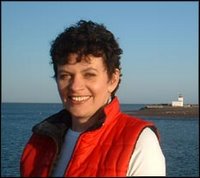Experts from more than 35 countries are gathering in Toronto this week to showcase new research and innovative solutions to key problems facing coastal areas and beach ecosystems: climate change, health and water quality, and sustainable tourism. Hosted by Environmental Defence and the Foundation for Environmental Education (a European-based organization), the Beaches World Tour 2007 conference brought together scientists, researchers, government officials, grassroots groups and activists who are working to protect shorelines.
Beaches World Tour 2007 marks the 20th Anniversary of the Blue Flag program, an international award for beaches and marinas that meet 27 strict criteria. Blue Flag, run by the Foundation for Environmental Education internationally and by Environmental Defence in Canada, certified more than 2,600 beaches around the world in 2007. In Canada, nine beaches were awarded the Blue Flag: six on Lake Ontario in Toronto; Sauble Beach and Station Beach on Lake Huron; and, Wasaga Beach on Georgian Bay.
Beaches and coastal areas are often the first to feel the effects of environmental problems, like climate change. There's a lot we can learn from other countries who are tackling difficult environmental issues and coming up with new ways to protect their coastlines. Even though we are in a less populated area than many other coastal environments, the Bay of Fundy should look into this!
Tuesday, October 16, 2007
Beaches World Conference being held this week in Canada!
Subscribe to:
Post Comments (Atom)






1 comment:
at the dedication of said blue flag, tourists were strewn across the 'sensitive' dunes, handed leaflets they dropped on the ground and when asked about both, they just shrugged -- the blue flag thing, so far as I can detect, is a tourism thing, bent on getting more people to leave an even larger eco-footprint on mock-sensitive locations as some sort of consumer education program; it's about as healthy and eco as those snack-foods sporting the blue-dot for healthy eating when they only mean that they have only the right kind of fat.
So far as I can tell, communities pay a hefty dollar for those blue flags, and they fully expect to recoup that expense; I won't even begin to summarize the credentials of the agencies handing out the designation, but I will just pause to mention how there are many truly ecologically sensitive shoreline areas very near the money-making centre of the tourism spot, and none of them has even been nominated for any special designation.
Of course, that's all just observation. I'm no expert in the matter, so I can only recommend you search for the term at this site to see what my neighbours thought of the plan.
Post a Comment